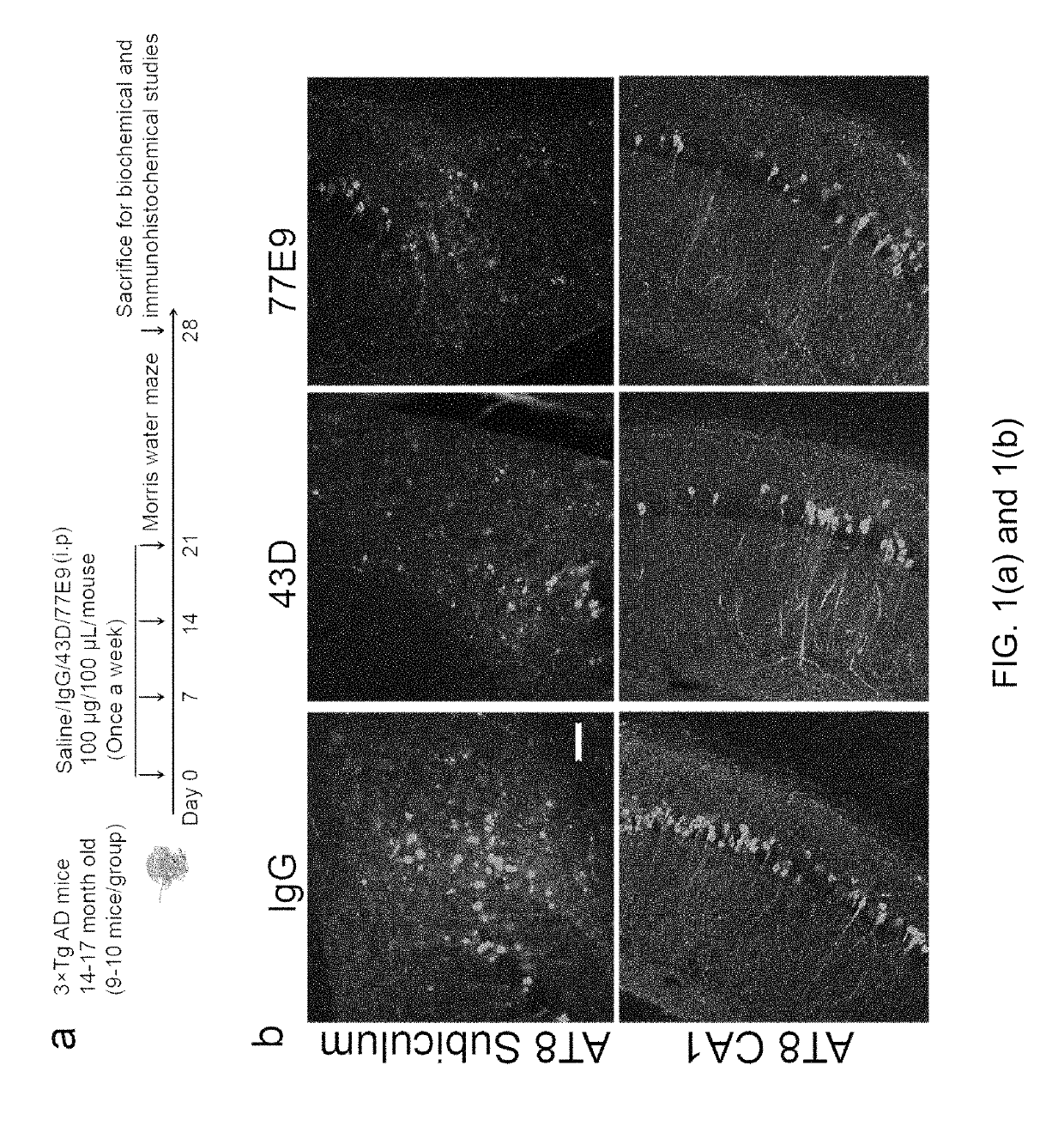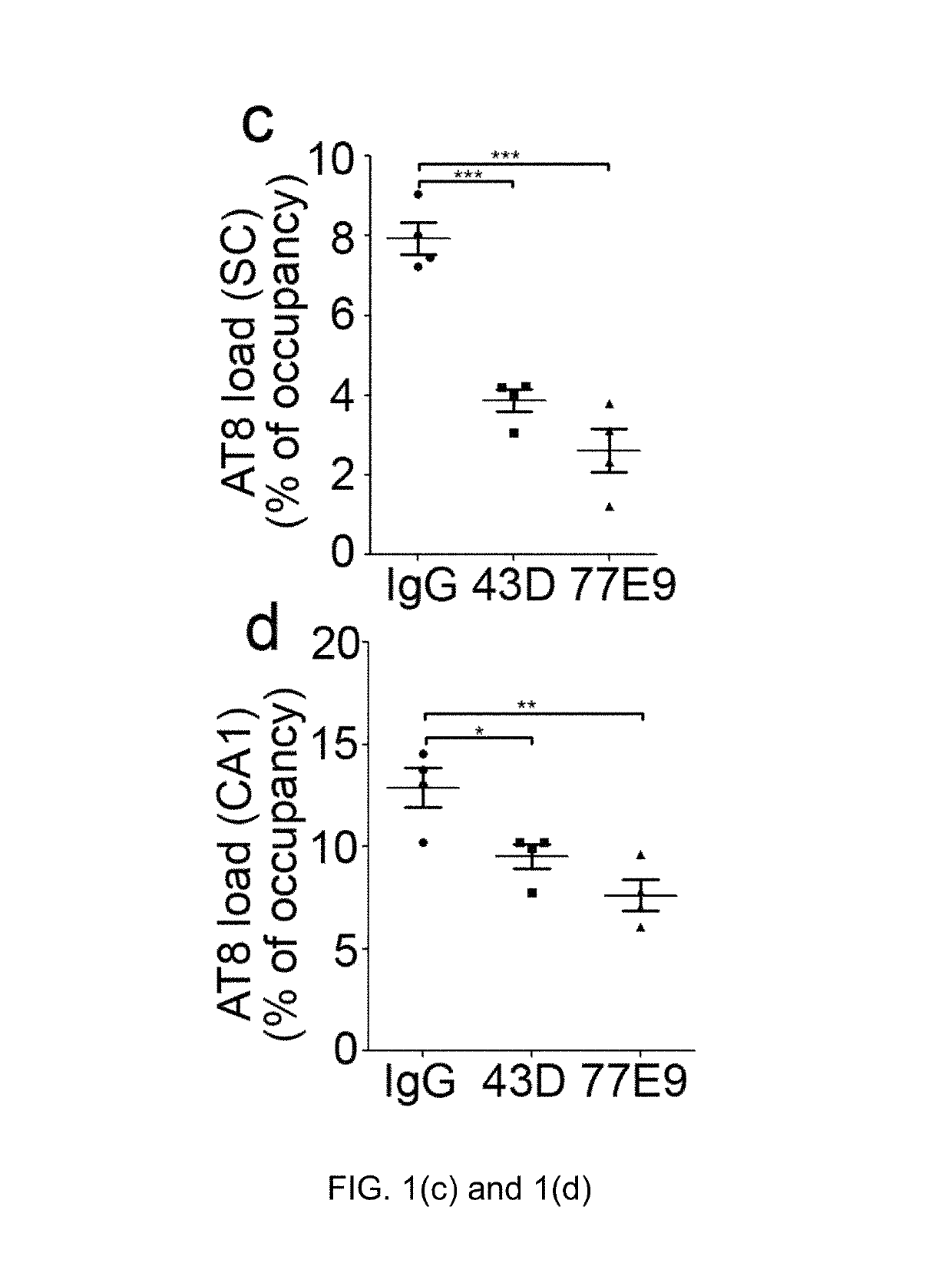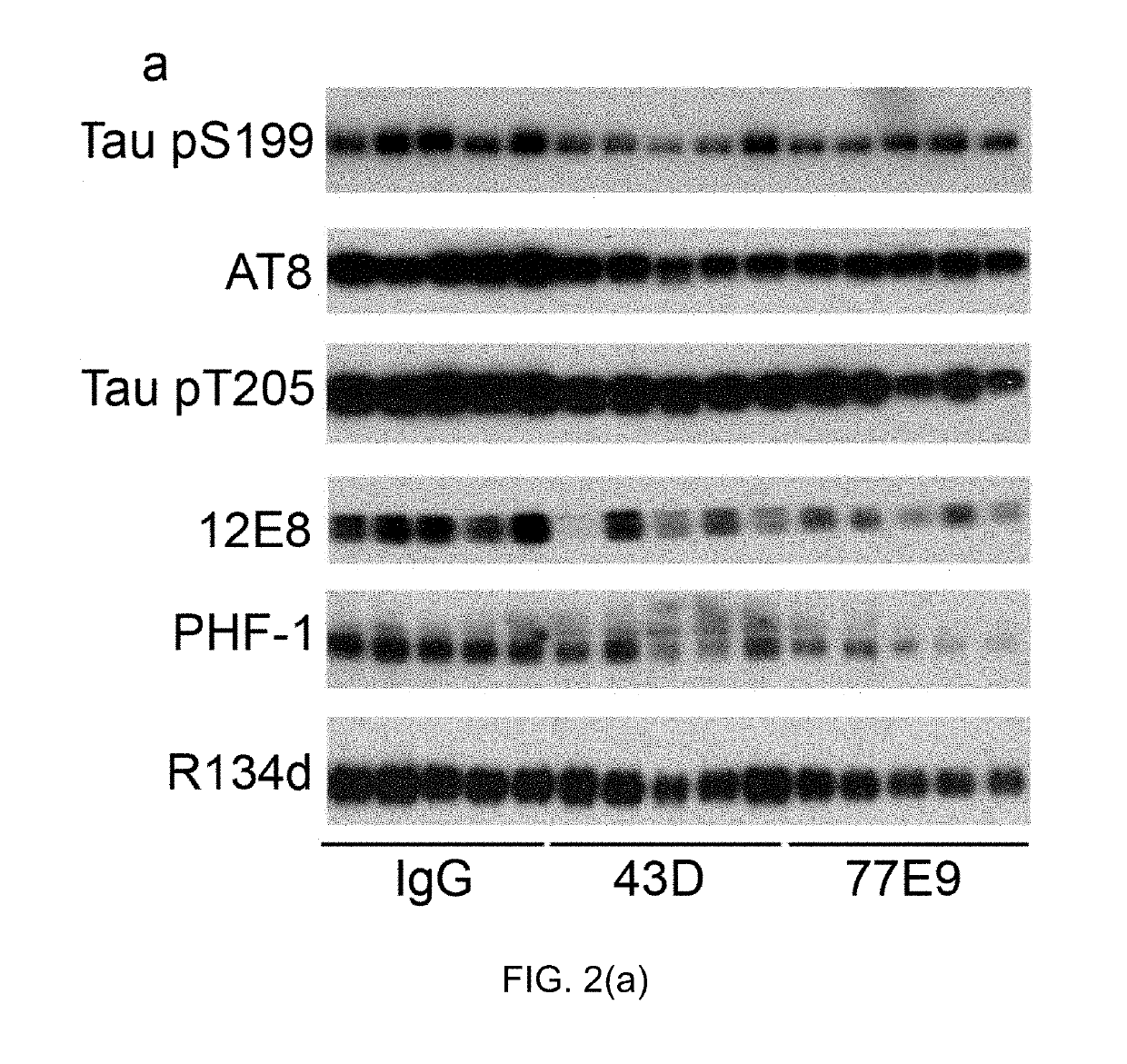Treatment of tauopathies by passive immunization targeting the N-terminal projection domain of tau
a technology of n-terminal projection and tau, which is applied in the field of taupathies, can solve the problems of not being able to reduce neurofibrillary pathology, not being able to prevent progressive neurodegeneration, and not being able to achieve the effect of reducing total tau level, reducing hyperphosphorylated tau, and reducing tau hyperphosphorylation
- Summary
- Abstract
- Description
- Claims
- Application Information
AI Technical Summary
Benefits of technology
Problems solved by technology
Method used
Image
Examples
example 1
Materials and Methods
[0036]Antibodies and Reagents
[0037]Primary antibodies used in this study are listed in Table 1 below:
[0038]
TABLE 1PhosphorylationAntibodyTypeSpecificitysitesSource / reference43DMono-TauCovance77 E9Mono-TauCovanceR134dPoly-TauJ Neurosci 19 (13):5245-5254.GAPDHPoly-GAPDHSanta CruzBiotechnologypS199Poly-P-tauSer199InvitrogenAT8Mono-P-tauSer202 / Thr205Thermo FisherScientificpT205Poly-P-tauThr205Invitrogen12 E8Mono-P-tauSer262 / 356Dr. D. Schenk, ElanPharmaceuticalsPHF-1Mono-P-tauSer396 / 404Dr. P. Davies,AECOM
[0039]Tau antibodies 43D against tau 6-18 epitope and 77E9 against tau 184-195 epitope were generated at New York State Institute for Basic Research, Staten Island. Peroxidase-conjugated anti-mouse and anti-rabbit IgG were obtained from Jackson ImmunoResearch Laboratories (West Grove, Pa., USA). The enhanced chemiluminescence kit was from Pierce (Rockford, Ill., USA). Human Aβ1-40 enzyme-linked immunosorbent assay (ELISA) kits were from Invitrogen (Carlsbad, Calif., ...
example 2
Materials and Methods
[0066]Antibodies and Reagents
[0067]Primary antibodies used in this study are listed in Table 2 below. Tau antibodies 43D against tau 6-18 epitope and 77E9 against tau 184-195 epitope were generated at New York State Institute for Basic Research, Staten Island. Peroxidase-conjugated anti-mouse and anti-rabbit IgG were obtained from Jackson ImmunoResearch Laboratories (West Grove, Pa., USA). The enhanced chemiluminescence kit was from Pierce (Rockford, Ill., USA). Human Aβ1-40 and human Aβ1-42 enzyme-linked immunosorbent assay (ELISA) kits were from Invitrogen (Carlsbad, Calif., USA). DPBS buffer was from Thermo Scientific, MA, USA. Other chemicals were from Sigma (St. Louis, Mo., USA).
[0068]
TABLE 2Primary antibodiesPhosphrylationAntibodyTypeSpecificitysitesSource / reference43DMono-TauCovance77 E9Mono-TauCovanceR134dPoly-TauJ Neurosci 19 (13):5245-5254.GAPDHPoly-GAPDHSanta CruzBiotechnologypS199Poly-P-tauSer199InvitrogenAT8Mono-P-tauSer202 / Thr205Thermo FisherScient...
PUM
| Property | Measurement | Unit |
|---|---|---|
| body weights | aaaaa | aaaaa |
| temperature | aaaaa | aaaaa |
| height | aaaaa | aaaaa |
Abstract
Description
Claims
Application Information
 Login to View More
Login to View More - R&D
- Intellectual Property
- Life Sciences
- Materials
- Tech Scout
- Unparalleled Data Quality
- Higher Quality Content
- 60% Fewer Hallucinations
Browse by: Latest US Patents, China's latest patents, Technical Efficacy Thesaurus, Application Domain, Technology Topic, Popular Technical Reports.
© 2025 PatSnap. All rights reserved.Legal|Privacy policy|Modern Slavery Act Transparency Statement|Sitemap|About US| Contact US: help@patsnap.com



